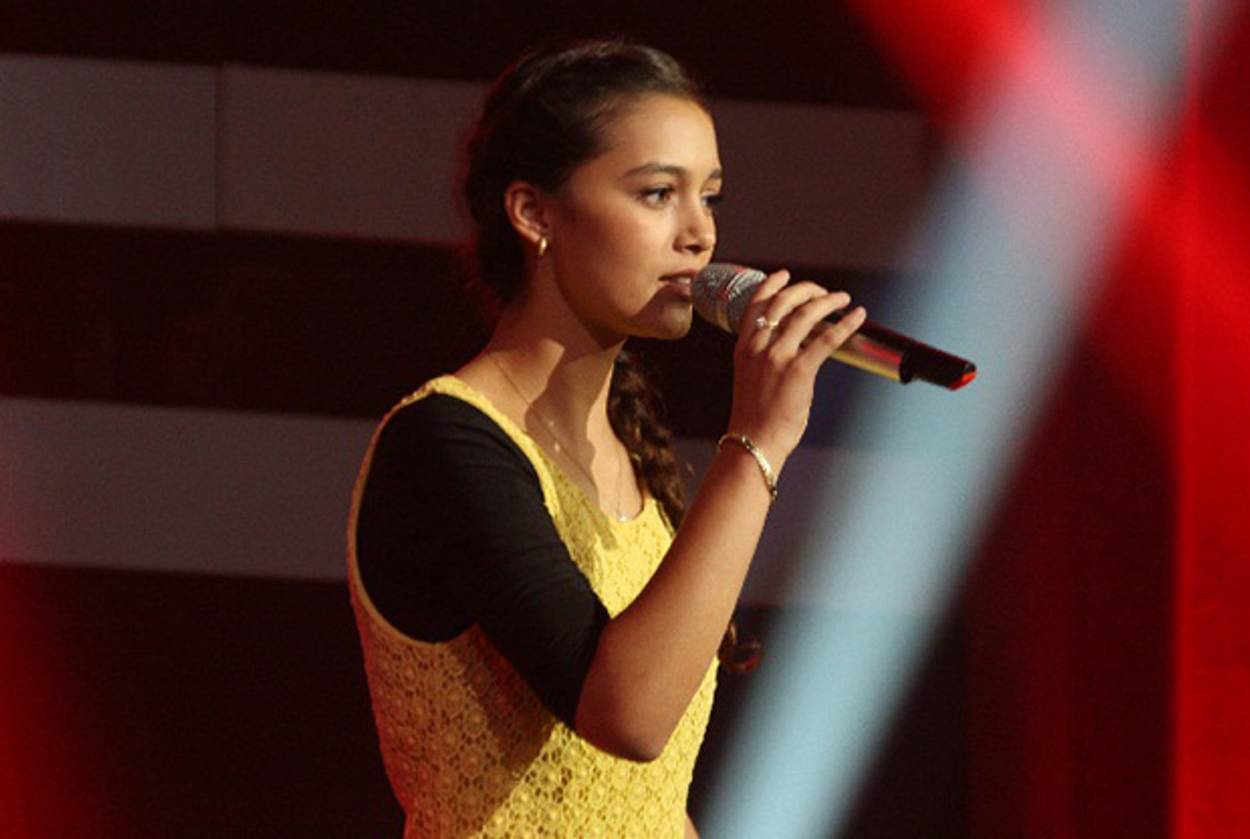An Orthodox Star Is Born
When Ofir Ben Sheetrit sang on Israel’s The Voice, her high school suspended her, but the country went wild




Last month, when the new season of the Israeli reality show The Voice—the local version of NBC’s hit singing competition—debuted, no one expected extraordinary drama. Marching up to the studio’s stage, the eager contestants looked like the usual grab-bag of talent show aspirants: the frustrated actor, the high-school ingénue, the bartender who crooned to overcome her personal hardships, and so on.
Then it was Ofir Ben Sheetrit’s turn.
Ben Sheetrit—at 17, one of the youngest of the show’s more than 50 contestants—is a student at an Orthodox yeshiva for girls in Ashdod and the only Orthodox young woman in the competition. Before she stepped in front of the microphone, she briefly introduced herself. “I’ve loved singing ever since I was little,” she said. “I’m looking for a way to cultivate my talent.” One of the show’s producers asked her if religion would get in the way; many Orthodox Jews consider the public singing of women immodest. Ben Sheetrit smiled sweetly. “I think the Torah wants us to be happy,” she said. “It wants music to make people happy. I think you can combine Torah and music, and this is why I chose to come on the show.” With that, she started singing an Israeli classic, Ofra Haza’s “Od Mechaka La’Echad.”
Almost immediately, the judges began pressing the buttons that swing their tall chairs around to face the contestants. Shlomi Shabbat, a veteran Israeli rocker, looked stunned. “You’re an angel,” he told Ben Sheetrit. Sarit Haddad, the queen of what can only be called Israeli soul music, was barely less hyperbolic. “You have entered my heart,” she told the blushing young woman in front of her, “and you’ll never leave it.”
The rules of the show require each contestant to choose one of the celebrity judges as a mentor, and both Haddad and Shabbat seemed like fine choices for Ben Sheetrit. Like them, she is a Mizrachi Jew, and by choosing to cover Haza—a pop star whose most famous hits were renditions of the traditional tunes her parents brought with them from their native Yemen—she was placing herself fairly close to Haddad and Shabbat’s own musical styles. But there was one more celebrity judge interested in Ben Sheetrit.
Aviv Gefen, Israel’s quintessential pop star, wasn’t as ebullient as his fellow judges. Gefen, who famously dodged military service and, during his heyday in the 1990s, frequently wore black eyeliner and walked around barefoot, is best remembered for his cri de coeur ballad subtly titled “We’re a F***ed Up Generation.” Geffen complimented Ben Sheetrit and said that, if she was so inclined, he’d like to be her mentor.
The show’s other judges took Gefen’s offer as a joke. What, they asked, might a lovely religious girl have to do with the prince of Tel Aviv’s godless bohemia? Ben Sheetrit soon silenced them: She chose Gefen. “Don’t worry,” she told her new mentor, “it’s not too late for you to become a ba’al teshuva.” Then, the two shook hands.
It was a perfect TV moment, but very soon it became something far more meaningful. Ben Sheetrit’s school, incensed that their student had flouted the stricture forbidding religious women to sing in public and the prohibition against touching members of the opposite sex, suspended her for two weeks. Reality television being more popular in Israel than any other human pursuit, the suspension soon made front-page news.
Reluctant to embrace her new-found status as a rebel with a golden voice, Ben Sheetrit explained in an interview that she was accepting her suspension. “I understood that what I did was against the spirit of the ulpana,” she said, “and didn’t want to create an opening for other girls to do the same. The punishment is symbolic.” Her meek protestations, however, were largely ignored. Ben Sheetrit has become the newest focal point of one of Israeli society’s oldest and most bitter struggles, the ever-growing rift between an increasingly stringent Orthodoxy and a combative secular majority wary of religious extremism. Caught in the middle of this culture war is a large swath of religious Jews who feel at home in both worlds and who want to live a traditional, observant life without subscribing to the strictest of rabbinic interpretations. To these Israelis, Ben Sheetrit is a heroine.
Naftali Bennett, the leader of the popular religious Zionist party Ha’Bayit Ha’Yehudi, identified himself early on as a huge Ben Sheetrit fan. “Her voice is pure,” he wrote on his Facebook page, “and it seems like her personality is magical as well.” The progressive rabbinical organization Tzohar ran an article in its official publication hailing Ben Sheetrit as a role model for her peers, “a religious girl who only loved her God and wanted, wanted so much, to sing in His honor.” And Ben Sheetrit’s neighbors in Nir Galim, the religious moshav where she lives, expressed their enthusiastic support for their most famous daughter. The community’s rabbi, Tzvi Arnon, said that while “no rabbi would ever permit a woman to sing for men, let alone on television,” he understood why so many of his constituents supported Ben Sheetrit. “I understand that girls today grow up in this generation where everyone around them is talking about fulfilling your potential,” he said. “It’s a tough conflict. And while I don’t support her decision, I understand the context for it and know that she is truly faithful to halakhah.”
The rabbi also stated that he intended to meet Ben Sheetrit and hoped to mentor her and give her the right spiritual tools to help her navigate her experience on television. With both him and Aviv Gefen on hand to consult her, Ofir Ben Sheetrit may become something far more sublime than a reality show star: the rare Israeli that can bring religious and secular Jews closer.
***
Like this article? Sign up for our Daily Digest to get Tablet Magazine’s new content in your inbox each morning.
Liel Leibovitz is a senior writer for Tablet Magazine and a host of the Unorthodox podcast.
Liel Leibovitz is editor-at-large for Tablet Magazine and a host of its weekly culture podcast Unorthodox and daily Talmud podcast Take One. He is the editor of Zionism: The Tablet Guide.